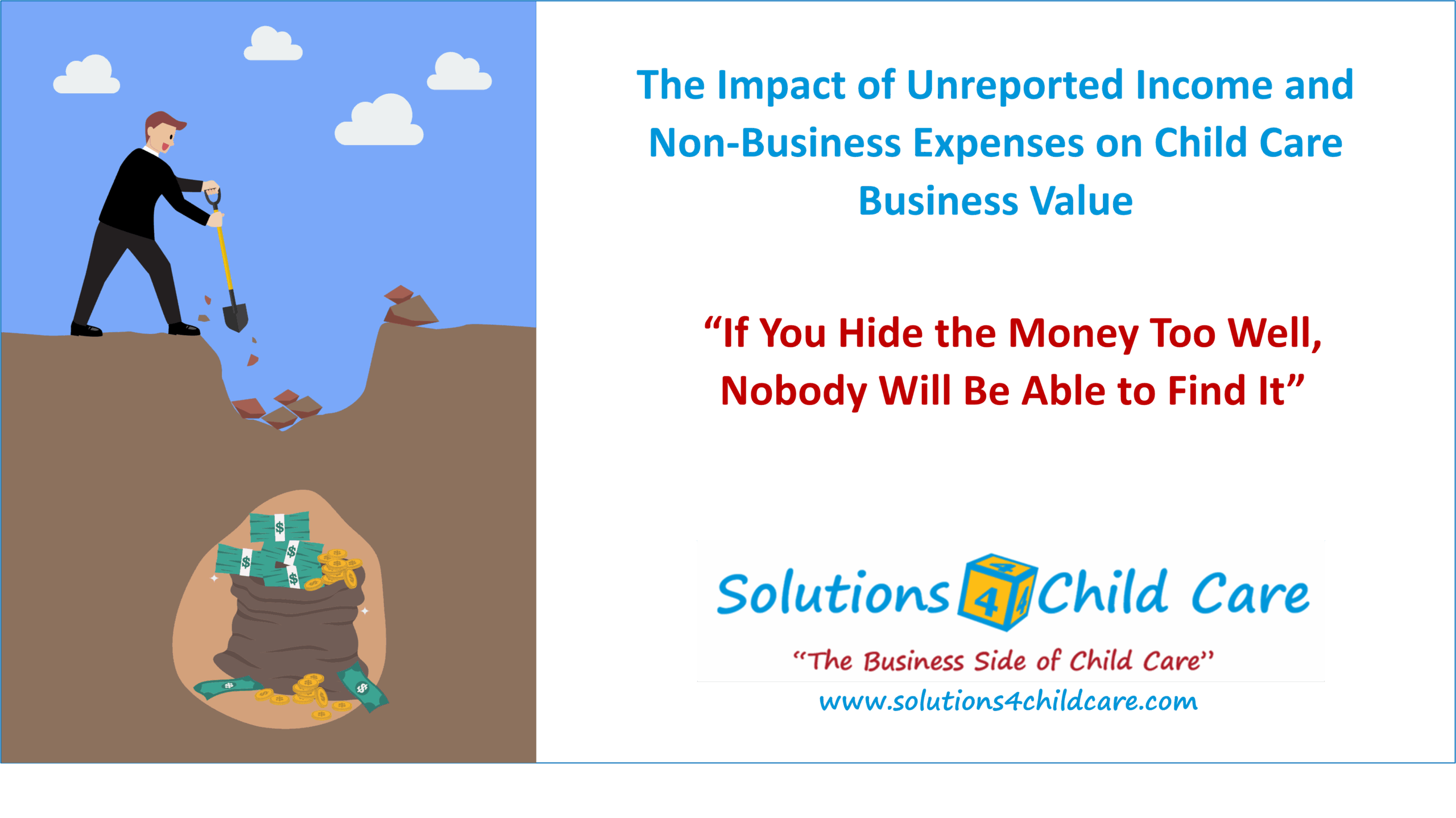When I started my business brokerage career in 1995, it was common to find that the business owner was not reporting all business revenues. In addition, they were also running lots of personal expenses (cars, house payment, country club membership, personal food, etc.) through their business. This, of course, was done to lessen the federal and state taxes paid each year. Over the years, there has been a decline in this type of activity. This has happened for several reasons.
- First, increases in technology and digital banking have made it much easier for the IRS to detect, track and find unreported business income and non-business-related expenses.
- Tax avoidance is legal; tax evasion is criminal. Fewer accounting professionals are willing to continue to work with business owners long-term that underreport revenue and inflate expenses.
- In most states, the funding for child care tuition – public funding at the state level or county level is often publicly obtainable information. The amount of revenue on an annual and monthly basis paid to each child care center is published information.
- A growing number of child care business buyers, business brokers, bankers, lenders, and financial consultants opt not to consider working with businesses with questionable financial statements and tax returns. Why? When a business owner represents inaccurate financial information (tax returns) as true, it is considered fraud. When third parties (other professionals) represent the financial information as true (if they know it is not), it perpetuates fraud – no one wants to suffer the consequences of being a part of the fraud. So, folks are unwilling to discuss cash not deposited in the business bank account, inaccurate enrollment/billing for child care to public funding agencies, tallying up a long list of personal/family expenses run through the child care business, or similar non-business-related expenses. Business Brokers do not want to try to explain the financial inaccuracy to buyers. Most buyers will have advisors helping them with acquiring a child care business. Professional advisors are quick to advise buyers to pass on buying a business with questionable financial records – they do not want to incur any liability either. Accountants and CPAs are not going to engage in conversations with buyers, their CPAs, attorneys, lenders, or others about their client’s unreported income and inflated expenses. And, lenders and investors are less likely to provide funding for the acquisition of a business with questionable financial records.
Not as common as it used to be; however, I still see some child care business owners with unreported income and inflated business expenses. So, what is the impact on the value of the child care business? The short answer is that it decreases the value of the child care business – and often the value of the real estate (building and land). Not reporting all of the revenue that comes into your child care business, and inflating (paying personal expenses) expenses decreases the business’s net operating income (profitability). Lower business profitability equals lower business value.
So, one of the quickest ways to increase the value of your child care business is to “stop hiding the money”. Report all your income, including any tuition payments and registration fees that come as green cash. Analyze line by line all the expenses paid by your child care business. Stop paying for personal things through your business – food for home, personal travel (non-business related), non-working family members on the payroll, personal vehicles, club, and social memberships, household expenses and repairs, yoga classes 😊, etc. If the expenses are personal and non-business-related, stop paying for them through your child care business. Accurately report your child care finances, stop spending time trying to “hide the money” and use that time to work on making your child care business more financially healthy, profitable, and valuable.







